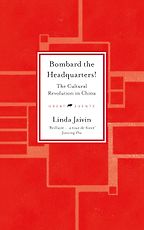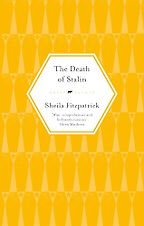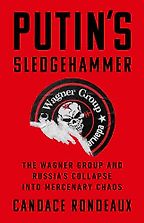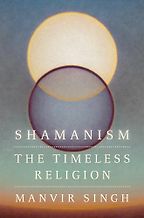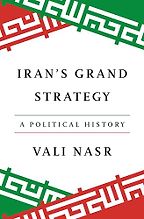Where I live, it’s the middle of summer now, so this nonfiction roundup might have a bit of a beach read feel. I offer my usual apologies for choosing books that appeal to me, my interests, and fill gaps in my own knowledge.
One of my favourite discoveries of the last few years is Old Street Publishing, a London-based publisher which comes out with some excellent and extremely short nonfiction books on subjects that often appeal to me. In the last few months, they’ve started a new series based on important events, and kicked off with two books. One was a book on the Cultural Revolution, which, in an age of a rising China, is important to understand for the dark shadow it casts over the present. To grossly oversimplify, Mao Zedong, feeling his leadership under threat after making some terrible mistakes, encouraged attacks on other Chinese Communist Party leaders. The populist movement he unleashed tore China to pieces from 1966-1976 and left hundreds of thousands—possibly millions—of people dead. It’s a well-known story, but what’s so good about Bombard the Headquarters! is that it’s by Linda Jaivin, an Australian Sinologist who really knows China. The book takes about three hours to read and even has good photos.
The other book in the new series is The Death of Stalin by Sheila Fitzpatrick. This is not the brilliant, funny movie by Armando Iannucci, or the comic book that the movie is based on (La Morte de Staline), even though they share the same title. Rather, it uses the moment of Stalin’s death to tell the story of the Soviet Union, on which Fitzpatrick is a leading historian. Again, you feel yourself in the hands of an expert to tell a story that still has serious implications for the present.
In an existing series, The Shortest History of Austria is now out. This is effectively a history of Europe over nearly a millennium. The Habsburgs ruled over vast swathes of the continent for 600+ years until losing everything at the end of World War I. It’s by Vienna-based writer and translator Nicholas Parsons and, again, packs a lifetime of study into a short book.
For really drilling down into a topic, my favourite, unputdownable nonfiction book of the last few months was Putin’s Sledgehammer by Candace Rondeaux. This is about the Wagner Group and its leader, Yevgeny Prigozhin, a hotdog seller from St. Petersburg who rose high but was ultimately killed after challenging Vladimir Putin and marching on Moscow in 2023. The book takes us through every step of that evolution, and is a jaw-dropping account of Russian mercenary activities in Syria, several African countries and Ukraine, featuring troll farms, PR campaigns and information warfare as well as gruesome murders and even cannibalism. Inevitably, you don’t get to know Prigozhin himself (or Putin, the man at the top of the pyramid), but it’s a very full picture of a world he built and operated, and that I knew absolutely nothing about.
Another eye-opening book that’s a lot of fun to read is Shamanism by anthropologist Manvir Singh. The book combines Singh’s attempts to visit or live amongst shamans in Indonesia and other places around the world with his scholarly insights into what shamanism actually is and how it has persisted around the world. One moment, he is covered in vomit after taking a hallucinogenic substance called yopo, the next, sharing insights shamanistic healing brings to how Western medicine treats patients.
The book is the “culmination of a decade spent researching the psychological origins of religion,” Singh writes. “Journeying into shamanism provides us with a new lens to understand human nature—a lens that alters how we see the world around us.” The book made me think and is a great advertisement for anthropology as a discipline.
The Middle East looms large in the news at the moment, and there are a number of new books about it. The Great Betrayal: The Struggle for Freedom and Democracy in the Middle East is by Fawaz Gerges, a professor at LSE, and represents more than a decade of work “trying to answer a recurring question posed by my students: Why has the Middle East reached this seeming low point after a century of state- and nation-building?” The book covers the region from the end of the Ottoman Empire to the Arab Spring and highlights the interaction of foreign intervention and domestic authoritarianism as the root cause of the problems.
Iran’s Grand Strategy by Vali Nasr is a more manageable read because it focuses on just one country. It’s also interesting because it’s a country whose perspective we don’t often take the time to consider. Why is Iran’s government so focused on opposing the US, when the price of resistance has been so high, impoverishing the country’s people and gutting the middle classes?
Tracing Iran’s turbulent 20th-century history, Nasr argues it’s not about religious ideology and that our understanding of Iran’s strategic calculations is “hopelessly inadequate and dangerously outdated.’ Rather, it is about resisting imperialism and maintaining national sovereignty. Even the signature moniker the Ayatollah Khomeini used for the US—’Great Satan’—was apparently “lifted from communist propaganda literature of the 1950s.”
Interestingly, the book came out before US air strikes on Iran, and one can’t help but wonder what impact they have had on the ‘grand strategy.’
July 27, 2025. Updated: December 12, 2025
Five Books aims to keep its book recommendations and interviews up to date. If you are the interviewee and would like to update your choice of books (or even just what you say about them) please email us at [email protected]
Five Books interviews are expensive to produce. If you've enjoyed this interview, please support us by donating a small amount.


